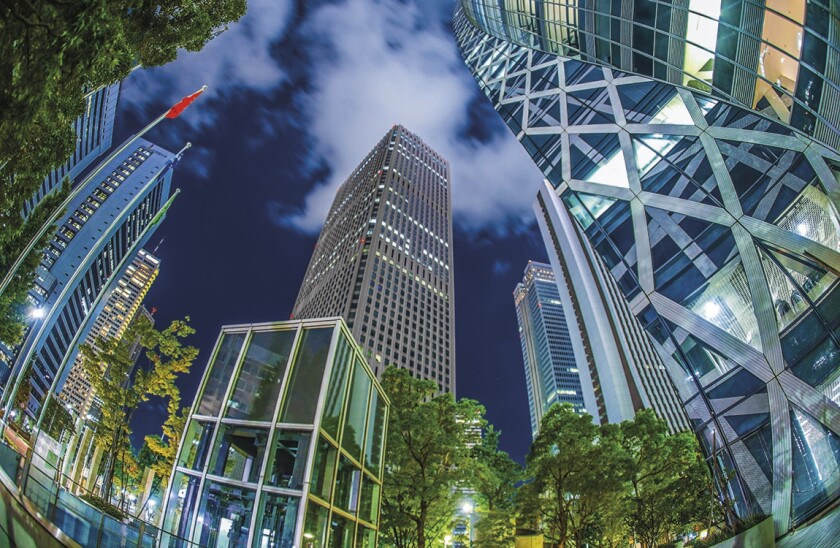A rebound in Japan’s economic growth and stockmarket valuations is prompting global investors to ask if Asia’s second largest economy can finally mount a sustained ascendancy after years of anaemic performance. But clouds are never far away ― analysts believe growth could plunge later this year.
The IMF has robustly forecast Japan’s economy to expand by 2% in 2023 and 1% in 2024, making it one of the fastest-growing economies in the developed world over that period, according to its latest World Economic Outlook, published on Tuesday.
The broad Topix index hit a new multi-decade high in September, topping 2,400 for the first time since July 1990. Bank of America analysts believe it could soon exceed its all-time peak in 1989, just before the bursting of an almighty asset bubble.
Experts told GlobalMarkets they saw reasons for both hope and caution. Inflation looks set to stay moderate, after years of being super-low, interspersed with periods of deflation. The annual inflation rate edged down from 3.3% to 3.2% in August.
“One of the biggest narratives is the success in tackling inflation, with wages at their highest rate in the past 30 years,” said Kohei Iwahara, economist, Japan and Pacific, at Natixis Japan Securities.
Global investors and companies have taken note. Japan ranks third in this year’s foreign direct investment confidence index from Kearney, the management consultancy, up from fourth a year ago and behind only Canada and the US.
Several global chipmakers are in active talks to bring manufacturing back to Japan, motivated by a widespread redrawing of supply chains, as global companies seek to diversify away from an uncertain, slower-growing and capricious China.
Pent-up demand
But analysts and investors are also wondering how long the good mood can last. At least some of the renascent optimism is due to the government lifting the last remaining Covid-related entry restrictions in April. On one hand, Japan’s risk aversion probably held back the economy for far too long. On the other, normalisation this year has come as an economic super-accelerant.
The return to normality has boosted car exports and “stimulated private consumption and released pent-up demand,” said Iwahara.
In its latest Asia economic report, published last week, Japanese bank Nomura tipped the economy to expand by a whopping 1.3% quarter-on-quarter in the three months to September.
But beyond autumn the outlook dims. Nomura reckons output will contract 0.6% in the final quarter of the year and 0.5% in the first three months of 2024, “driven by a decline in public investments, slowing exports and a reactionary increase in imports”.
It highlighted a host of uncertainties ahead, including geopolitical tensions, softer-than-expected retail sales and rising global resources and food prices.
Katrina Ell, director of economic research at Moody’s Analytics, said Japan had enjoyed a “decent rebound” this year, with domestic demand staging “an impressive uptick”, helped by the impressive return of international tourism.
“But the domestic rebound will fade into 2024 as export conditions remain mediocre.” She believes GDP will grow just 0.4% next year. “If the central bank dials back monetary stimulus in 2024, it will be tough going for households and businesses, given the post-pandemic rebound will have run its course.”
